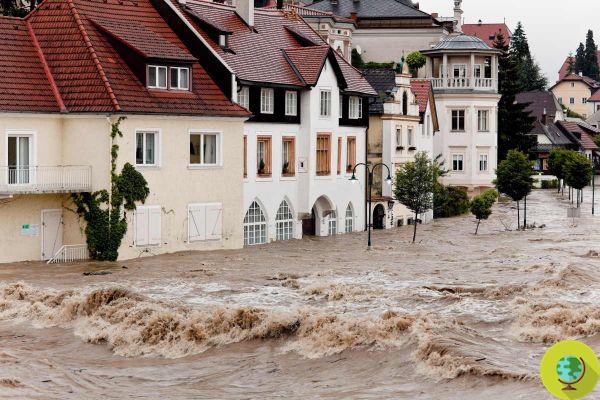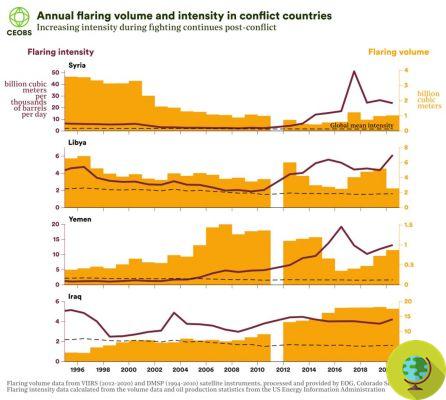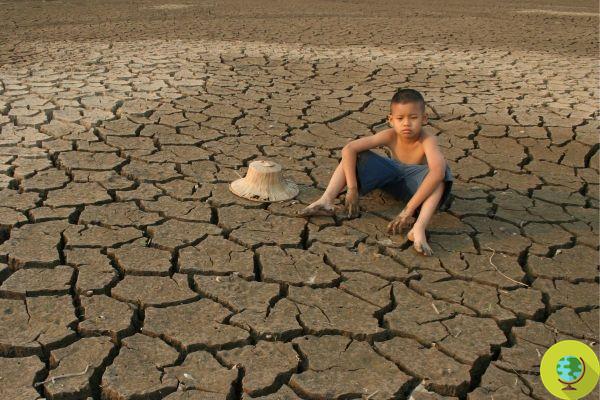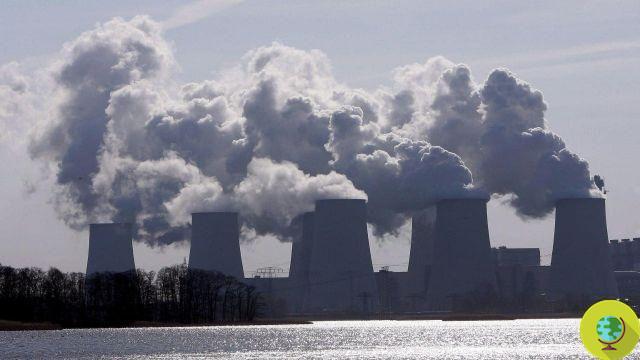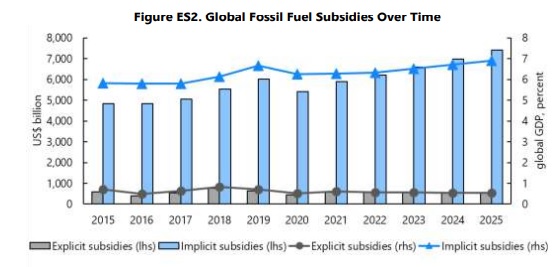
He is about to end up run over, his mother saves him
The climate emergency is affecting various sectors of agriculture and starting to give problems to the production of coffee as well. A new study shows that Colombia, the world's third largest producer of coffee, is struggling with various problems to maintain production.
If you start the day with a cup of coffee, chances are your breakfast comes from Colombia, the third country in the world to produce the precious beans. Unfortunately, however, the most famous and loved drink in the world, a cultural and social symbol, is at risk, threatened by the climate crisis. In fact, climate change is posing new challenges to agricultural production all over the world, but the cultivation of coffee in Colombia seems to suffer the greatest consequences. (Read also: Arabica coffee faces extinction due to climate change)
In fact, coffee plants are very sensitive to bad weather and temperature changes: studies have estimated that a 2 ° C increase in temperature would lead to productivity losses of up to 24% in the leading producing country. Other countries affected by coffee cultivation will certainly suffer losses in production: a decrease in productivity of 34% for Mexico and 20% for Brazil is estimated.
As for Colombia, a new study, conducted by Professor Federico Ceballos-Sierra of the University of Illinois, shows that the effects of climate change can vary greatly depending on the area of production of coffee beans. In fact, the country has a varied geographical landscape, characterized by cooler plateaus and lower latitude areas, with higher temperatures. Colombian coffee currently grows in areas with different altitudes and the climate impacts are likely to be very different depending on the height - says Sandy Dall'Erba, co-author of the study.
If on the one hand, at the national level, an increase in production of 7,6% by 2061 is estimated, on the other hand this figure includes different percentages depending on the regions and the effects of climate change (a 16% increase in high latitude areas, less affected by climate change, corresponds to an increase of only 8% in the lower latitude areas). In practice, the increase in temperatures that will occur in the next few years represents an advantage for those regions that have so far only been marginally affected by coffee cultivation. Low-latitude regions, on the other hand, will be more affected by the losses resulting from climate change. Up to 550.000 families today depend directly on coffee production for their livelihoods and many more depend indirectly on it: all of these people will see their lifestyle jeopardized because production will no longer be profitable by the middle of the century. (Read: Coffee and orange waste shouldn't be thrown away! They're great for accelerating forest restoration)
In anticipation of these changes in the spread of coffee plants, some producers are moving their crops higher up into the mountains. This shift of crops to higher altitudes will damage the biodiversity of these places. Furthermore, not all farmers will have sufficient economic resources to afford the transfer of production to more favorable areas. Small producers then look for other avenues - such as more frequent irrigation, switching to different varieties of coffee or different crops, greater use of trees that give shade to the plants.
Fonte: ScienceDirect
To deepen the topic of climate change and coffee:
- Coffee (and bees) at risk from climate change. How to intervene?
- Climate change: cocoa and coffee are in danger of disappearing
- Foods that are in danger of disappearing due to climate change
- Conncected By Coffee: the documentary that reveals the dark sides of coffee




